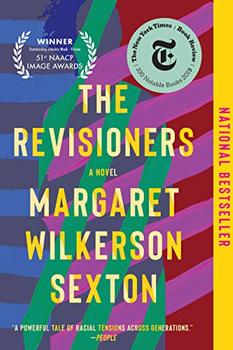Summary | Excerpt | Reading Guide | Reviews | Beyond the book | Read-Alikes | Genres & Themes | Author Bio

Marilynne Robinson, winner of the Pulitzer Prize and the National Humanities Medal, returns to the world of Gilead with Jack, the latest novel in one of the great works of contemporary American fiction.
Marilynne Robinson's mythical world of Gilead, Iowa―the setting of her novels Gilead, Home, and Lila, and now Jack―and its beloved characters have illuminated and interrogated the complexities of American history, the power of our emotions, and the wonders of a sacred world. Jack is Robinson's fourth novel in this now-classic series. In it, Robinson tells the story of John Ames Boughton, the prodigal son of Gilead's Presbyterian minister, and his romance with Della Miles, a high school teacher who is also the child of a preacher. Their deeply felt, tormented, star-crossed interracial romance resonates with all the paradoxes of American life, then and now.
Robinson's Gilead novels, which have won one Pulitzer Prize and two National Book Critics Circle Awards, are a vital contribution to contemporary American literature and a revelation of our national character and humanity.
Excerpt
Jack
He was walking along almost beside her, two steps behind. She did not look back. She said, "I'm not talking to you."
"I completely understand."
"If you did completely understand, you wouldn't be following me."
He said, "When a fellow takes a girl out to dinner, he has to see her home."
"No, he doesn't have to. Not if she tells him to go away and leave her alone."
"I can't help the way I was brought up," he said. But he crossed the street and walked along beside her, across the street. When they were a block from where she lived, he came across the street again. He said, "I do want to apologize."
"I don't want to hear it. And don't bother trying to explain."
"Thank you. I mean I'd rather not try to explain. If that's all right."
"Nothing is all right. All right has no place in this conversation." Still, her voice was soft.
"I understand, of course. But I can't quite resign myself."
She said, "I have never been so embarrassed. Never in my life."
He said, "Well, you haven't known me ...
Jack traverses the intervening years between the titular character's departure and return to Gilead, painting a portrait of an infinitely flawed and complicated man grappling with what it means to truly love. Despite the deep connections to the other books in the Gilead series, readers don't need to have read any of them to appreciate Jack. They can lose themselves in Robinson's beautiful language and boundless empathy for her characters just as easily. However, if readers are returning to the world of Gilead, they will find that Jack, and his actions, remain the axis upon which so much of the emotional weight of this world spins...continued
Full Review
(877 words)
This review is available to non-members for a limited time. For full access,
become a member today.
(Reviewed by Debbie Morrison).
 In Marilynne Robinson's novel Jack, the title character, a white man, meets and falls in love with a Black woman named Della. However, America's racism, segregation and anti-miscegenation laws in the 1950s present a nearly insurmountable obstacle for the couple. One of their specific concerns is how and where they will live together as man and wife. That they live in the deeply segregated city of St. Louis is a significant choice of setting, as it underscores issues of race and segregation in the broader U.S.
In Marilynne Robinson's novel Jack, the title character, a white man, meets and falls in love with a Black woman named Della. However, America's racism, segregation and anti-miscegenation laws in the 1950s present a nearly insurmountable obstacle for the couple. One of their specific concerns is how and where they will live together as man and wife. That they live in the deeply segregated city of St. Louis is a significant choice of setting, as it underscores issues of race and segregation in the broader U.S.
For much of the early 20th century, St. Louis boasted one of the country's largest Black communities. During the first wave of the Great Migration, generally dated from the late 19th century through 1930, many African Americans ...
This "beyond the book" feature is available to non-members for a limited time. Join today for full access.

If you liked Jack, try these:

by Margaret Wilkerson Sexton
Published 2020
Following her National Book Award–nominated debut novel, A Kind of Freedom, Margaret Wilkerson Sexton returns with this equally elegant and historically inspired story of survivors and healers, of black women and their black sons, set in the American South.

by Marilynne Robinson
Published 2009
Home parallels the story told in Robinson's Pulitzer Prize-winning Gilead. It is a moving and healing book about families, family secrets, and the passing of the generations, about love and death and faith.




Children are not the people of tomorrow, but people today.
Click Here to find out who said this, as well as discovering other famous literary quotes!